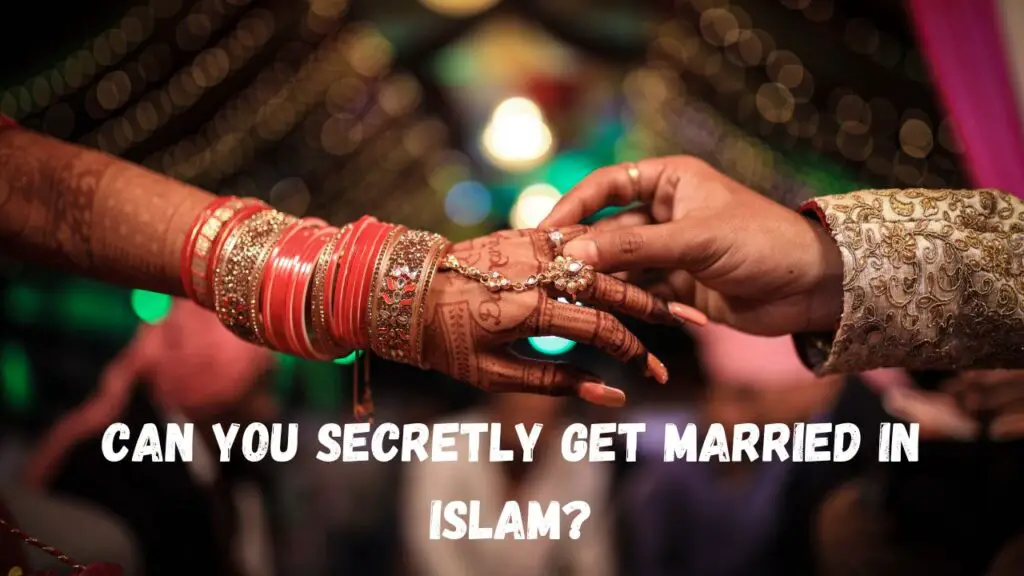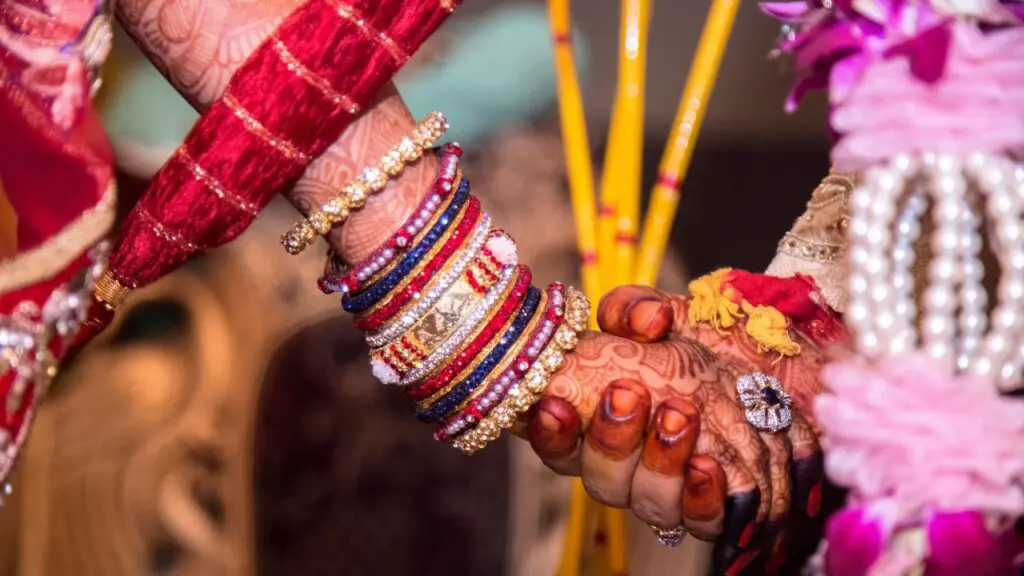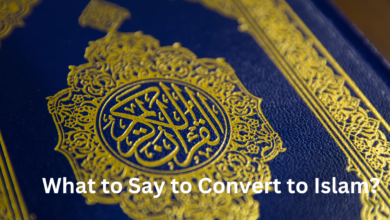Can You Secretly get Married in Islam? | Unlocking the Secrets of Nikah | 2023
"Unlocking the Secrets of Nikah: Can You Secretly Get Married in Islam?"

Can You Secretly get Married in Islam?
Yes, under specific circumstances, secret marriages are permissible in Islam. These situations typically involve valid reasons such as fear of harm or protecting one’s reputation.

- Is It Haram to Sit on a Pillow? The Islamic Perspective on Cushion Etiquette
- What is Radical Muslims in Islam | Reality of Radical Muslims | 2023
- Is It Haram to Eat Horse Meat? Understanding the Islamic Perspective
- Is Dropshipping Halal? Understanding the Islamic Perspective 2023
- Is killing a spider considered haram in Islam?
Introduction
Marriage is a sacred institution in Islam, a bond that is publicly acknowledged, celebrated, and blessed by the community. It is a commitment to love, support, and share one’s life with a partner. However, the question often arises: Can you secretly get married in Islam? While the Islamic tradition places a strong emphasis on the public declaration of marriage, there are circumstances where a secret or concealed marriage may be permissible. In this article, we will delve into the concept of secret marriages in Islam, examining the conditions, reasons, and implications surrounding them.

The Public Declaration of Marriage in Islam
In Islamic tradition, marriage is considered a contract that is to be made publicly known. The Quran explicitly states, “And when you have divorced women and they have [nearly] fulfilled their term, either retain them according to acceptable terms or release them according to acceptable terms, and do not keep them, intending harm, to transgress [against them]. And whoever does that has certainly wronged himself.” (Quran 2:231). This verse underscores the importance of clear and transparent marital agreements, emphasizing the need for public knowledge.
Conditions

Despite the emphasis on public declarations, Islamic jurisprudence recognizes certain circumstances in which a secret marriage may be permissible. These conditions are generally based on genuine and valid reasons that necessitate such secrecy:
- Fear of Harm: If revealing a marriage would subject the couple to harm, danger, or persecution, it may be permissible to keep it secret. This could be due to cultural, familial, or societal pressures that pose a genuine threat to the couple’s safety.
- Protecting Reputation: In cases where revealing a marriage might harm the reputation of one or both individuals involved, such as instances of previous marriages or societal expectations, a secret marriage may be an option.
- Legal Requirements: In some jurisdictions where the legal requirements for marriage are complex, couples may opt for a secret marriage to simplify their situation. However, they are still required to fulfill the religious obligations of marriage.
- Guardianship Issues: If a woman faces difficulties obtaining her guardian’s approval for marriage, which is often required in some cultural contexts, she may choose a secret marriage as a last resort to protect her rights.
Can You Secretly get Married in Islam?
Yes, under specific circumstances, secret marriages are permissible in Islam. These situations typically involve valid reasons such as fear of harm or protecting one’s reputation.
What are the conditions for a secret marriage in Islam?
Conditions may include a genuine fear of harm, protecting one’s reputation, legal complexities, or difficulties obtaining a guardian’s approval for marriage.
Are secret marriages recognized by Islamic law (Sharia)?
Yes, secret marriages can be recognized by Islamic law if they meet the essential criteria for a valid marriage contract, including the consent of both parties and the presence of witnesses.
Is there a difference between Sunni and Shia Islam regarding secret marriages?
Yes, there are differences. Sunni Islam generally does not endorse secret marriages, while Shia Islam acknowledges a temporary marriage concept known as “Nikah al-Mut’ah.”
What are the potential consequences of secret marriages in Islam?
Consequences may include a lack of community support, legal complications, potential for exploitation, and spiritual challenges related to secrecy and deception.
The Concept of Nikah al-Mut’ah

In Shia Islam, there exists a concept known as “Nikah al-Mut’ah” or temporary marriage. This practice allows individuals to enter into a marriage contract for a specific duration, often without the intention of establishing a lifelong commitment. Nikah al-Mut’ah is seen as a form of secret marriage because it is not necessarily meant to be a long-term, publicly recognized union. However, it is essential to note that Sunni Islam does not endorse this practice, and its legitimacy is a subject of debate among scholars.
The Implications of Secret Marriages
While secret marriages may be permissible under certain conditions, they come with several potential implications and challenges:
- Lack of Community Support: One of the primary benefits of a public marriage is the support and blessings of the community. Secret marriages may lack this essential element, potentially causing isolation and social difficulties for the couple.
- Legal and Inheritance Issues: In some jurisdictions, secret marriages may not be legally recognized, which can lead to complications related to inheritance, property, and child custody in the event of divorce or death.

- Potential for Exploitation: Secret marriages may be misused, leading to situations where one party exploits the other, knowing that their union remains hidden from the public eye.
- Spiritual Consequences: While secret marriages may be valid from a legal and religious perspective, they can impact the spiritual well-being of the individuals involved. Maintaining secrecy may lead to feelings of guilt, shame, or deceit.
Conclusion
In Islam, marriage is a sacred institution that is generally meant to be publicly acknowledged and celebrated. However, there are circumstances where a secret marriage may be permissible, provided it adheres to the conditions outlined by Islamic jurisprudence. These conditions are primarily rooted in the need to protect individuals from harm or undue societal pressures.

It is essential to approach the concept of secret marriages with caution, as they come with potential consequences and challenges, both legal and spiritual. While Islam allows for flexibility in exceptional cases, it encourages open and transparent relationships within the framework of marriage. Ultimately, the decision to enter into a secret marriage should be made after careful consideration of the circumstances and with the guidance of knowledgeable religious authorities.
Is it mandatory to reveal a secret marriage eventually?
While there may not be a strict obligation to reveal a secret marriage, it is often recommended to make it public when circumstances allow for transparency and community involvement.
How can one seek guidance on the permissibility of a secret marriage in Islam?
It is advisable to consult knowledgeable religious scholars or clerics who can provide guidance and clarify the religious and legal aspects of secret marriages.
Can secret marriages be registered legally in most countries?
Legal recognition of secret marriages varies by jurisdiction. In many places, a religious marriage ceremony may not suffice for legal purposes, requiring couples to register their marriage publicly.
Are secret marriages common in Muslim-majority countries?
Secret marriages occur but are not the norm. They are typically reserved for exceptional circumstances where revealing the marriage could result in harm or severe social consequences.
How can one ensure the validity of a secret marriage in Islam?
To ensure validity, it is crucial to follow all Islamic requirements for a valid marriage contract, including mutual consent, witnesses, and a clear understanding of the terms and conditions. Consulting with a knowledgeable religious authority is advisable.





